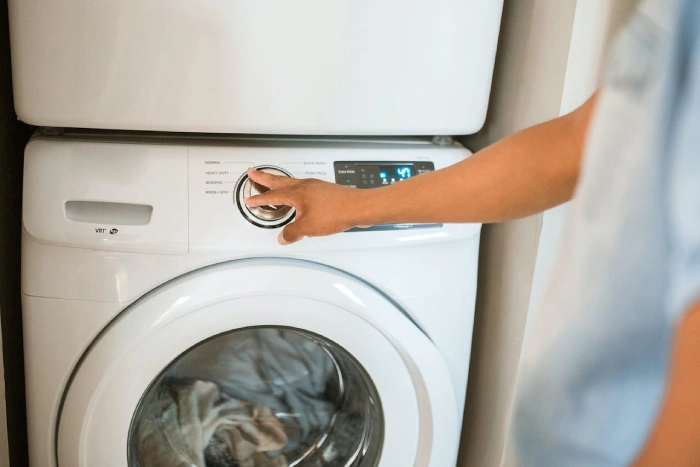Do you ever find yourself staring at piles of laundry, wondering if there’s an easier way to manage it all? Perhaps you’ve heard about smart washers and dryers and are curious whether they live up to the hype. Picture this: a washing machine that adjusts its cycles based on load size, fabric type, and soil level or one that can be controlled remotely via your smartphone or voice assistant. Smart washers and dryers promise a new level of convenience and efficiency. But are they truly worth the investment? Let’s delve into the balanced evaluation of the benefits and drawbacks of smart washers to help you make an informed decision.
Benefits of Smart Washers
Energy Efficiency & Water Optimization
Smart washers often tout superior energy efficiency and optimized water consumption. Utilizing technologies like load sensing and efficient laundry cycles, they aim to minimize resource usage, leading to potential cost savings and reduced environmental impact over time.
Smart Integration & Remote Control
The allure of seamless integration within smart home systems and remote control functionalities adds a layer of convenience. Syncing with home automation platforms or voice assistants allows users to initiate, monitor, and manage washing cycles remotely, catering to the preferences of tech-savvy consumers.
Enhanced Features & Customization
Smart washers offer a suite of enhanced features, from steam functions for better stain removal to delay start options and automatic detergent dosing. These capabilities aim to streamline the laundry process, offering tailored settings for different fabric types and soil levels.
Maintenance & Notification Systems
The inclusion of dedicated smartphone apps enables convenient scheduling, remote diagnosis of potential issues, and timely notifications when the laundry cycle completes. Such features can contribute to increased appliance longevity and efficient maintenance.
Considerations and Drawbacks
Cost vs. Functionality
Smart washers often come at a premium price compared to their traditional counterparts. The added cost may not justify the value for consumers who prioritize basic functionality over advanced features.
Reliability & Longevity
While smart features enhance usability, some users express concerns about the reliability and longevity of these smart home appliances. Traditional machines, known for their durability, may be perceived as a more reliable option for certain users.
Complexity & Learning Curve
The integration of technology can introduce complexities and a learning curve. Users accustomed to simpler machines may find the array of features overwhelming or unnecessary for their needs.
Who Should Consider Smart Washers?
For those seeking convenience, remote control functionality, and seamless integration within a smart home setup, a smart washer could prove worthwhile. Features like energy efficiency, water optimization, Smart Diagnosis, and Smart Tumble offer a modernized laundry experience, especially for tech-savvy users who prioritize connectivity and ease of use.
Alternatives and Final Consideration
However, households prioritizing simplicity, reliability, and cost-effectiveness may find traditional washing machines more suitable. Retrofitting traditional machines with external smart devices such as power monitoring plugs, timers, or DIY solutions using sensors can provide a middle ground. These solutions can offer certain smart-like features, such as receiving notifications when the laundry is done or controlling the machine remotely, without the expense of a fully integrated smart washer.
In conclusion, the decision between a smart washer and a traditional one depends on individual preferences, lifestyle, and the importance placed on convenience and advanced features. Understanding the benefits and drawbacks, as well as aligning those with personal needs and priorities, will guide consumers toward choosing the washing machine that best fits their household requirements.



